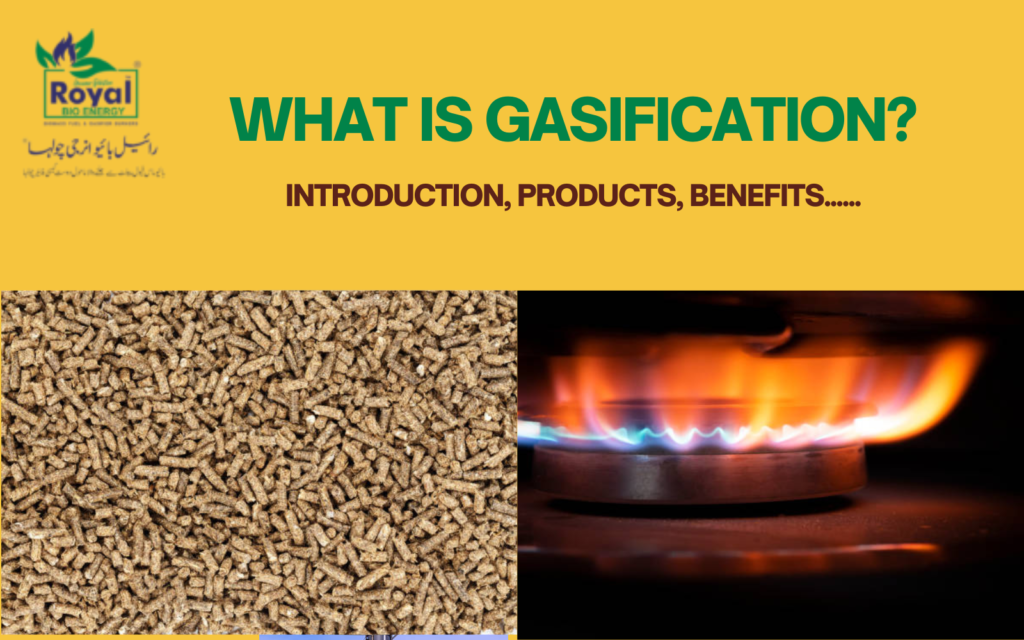Gasification is a thermochemical process that converts organic or fossil fuel-based carbonaceous materials into gases, including as the largest fractions: nitrogen, carbon monoxide, hydrogen, and carbon dioxide. This is achieved by reacting the feedstock material at high temperatures (typically >700 °C), without combustion, via controlling the amount of oxygen and/or steam present in the reaction. The resulting gas mixture is called syngas (from synthesis gas) or producer gas and is itself a fuel due to the flammability of the H2 and CO of which the gas is largely composed.
Products of Gasification:
Gasification is a versatile process that can be used to produce a variety of products, including:
- Syngas: Syngas is a fuel gas that can be used to generate electricity, heat, or power vehicles.
- Charcoal: Charcoal is a solid fuel that can be used for cooking or heating.
- Liquid-fuels: Liquid fuels, such as methanol and ethanol, can be produced from syngas.
- Chemicals: A variety of chemicals, such as fertilizers and plastics, can be produced from syngas.
Gasification is a clean and efficient way to produce energy from biomass and other carbonaceous materials. It produces less pollution than traditional combustion methods, and it can be used to produce a variety of products that are useful to society.
Benefits of Gasification:
Here are some of the benefits of gasification:
- Clean burning: Gasification produces less pollution than traditional combustion methods, such as burning wood or coal. This is because the gasification process takes place at a high temperature, which reduces the formation of harmful pollutants.
- Efficiency: Gasification is a more efficient way to produce energy than traditional combustion methods. This is because the gasification process converts more of the fuel into energy.
- Flexibility: Gasification can be used to produce a variety of products, including syngas, charcoal, liquid fuels, and chemicals. This makes it a versatile process that can be used to meet a variety of needs.
- Sustainability: Gasification can be used to produce energy from biomass, which is a renewable resource. This makes gasification a sustainable way to produce energy.
Gasification is a promising technology that has the potential to play a role in the transition to a clean energy future. It is a clean, efficient, and flexible process that can be used to produce a variety of products from biomass and other carbonaceous materials.
Conclusion:
The gasifier stove represents an ingenious solution that aligns environmental sustainability with human well-being. Its innovative approach to converting biomass into clean and efficient cooking fuel has the potential to transform the way we cook and positively impact communities around the world.

